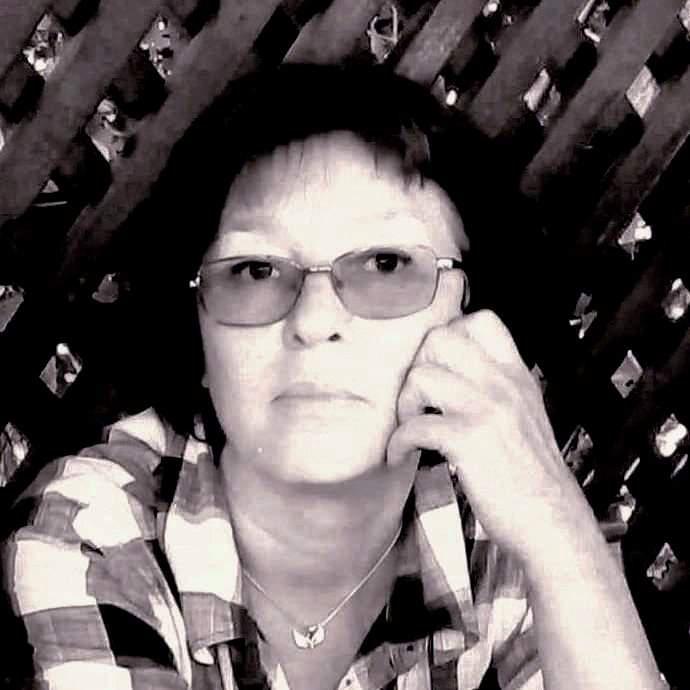
Divided…
divided between humility
and disastrous egos
receiving in the plexus his own
groan reflected in words
he – a precious spice
taken out on special days
for the hunt on the platter –
reminds you
when it is not the case:
I am the poet!
.
împărţit…
împărţit între umilinţă
şi orgolii dezastruoase
primind în plex propriul
vaier răsfrînt de cuvinte
el – un condiment preţios
scos de zile mari
pentru vînatul la tavă –
îţi reaminteşte
cînd nu e cazul:
eu sînt poetul!
.
How the Rain Flows
I listen to the drumming of rain on the blocks, its pure frankness. its absurd frankness in a country where even death is a politician: it doesn’t care about appearances, nor what hides beneath them, one goal pumping its blood to the heart – to win.
how the rain flows in a country of politicians, a theater in which the leading characters were replaced by monkeys with red bottoms… be it winter, be it summer, the monkeys run away from the light: down under, in the rat’s nest. up, in the attic with flour steam drugged moths. but they have no fear: flags of disaster, noble skins on sticks flutter on the roofs.
.
cum curge ploaia
ascult darabana ploii pe blocuri, franchețea ei pură. franchețea ei absurdă într-o țară unde până și moartea e un politician: nu-i pasă de aparențe, nici de ce se ascunde sub ele, un singur țel pompându-i sângele-n inimă – să învingă.
cum curge ploaia într-o țară de politicieni, un teatru în care personajelor de prim-plan le-au luat locul maimuțele cu funduri roșii… că-i iarnă, că-i vară, fug maimuțele de lumină: jos, în cuibul șobolanilor. sus, în podul cu molii drogate cu aburi de făină. dar teamă n-au: steaguri ale dezastrului, pe acoperișuri flutură pieile nobile puse pe bețe.
.
Bio and Translator’s Note
Mariana Codruț is a graduate of the Faculty of Philology, “Al.I. Cuza” University of Iasi. She lives in Iași.
Published books:
Poetry:
The rosehip in the woodshed (debut, junimea, 1982),
The habits of the summer night (cartea românească, 1989),
Acute existence (cartea romaneasca, 1994),
Hiatus (paralela 45, 2015),
The pulse cannot be minimalist (ed. paralela 45, 2019).
Prose:
Published by Polirom: the novel The house with yellow blinds (1997), short stories It was light, it was wind (cartier, 2021), the novel Diana’s nude, (2007)
Journalism:
The unbiased Romanian (Dacia XXI, 2011)
Translation:
J. Piaget, The child’s representation of the world (Cartier, 2005)
Theatre:
My name is life! (Euphorion magazine, nr.4 / 2019)
Her books have been nominated for various major prizes, some have been awarded.
She was awarded the “Spiegelungen Prize” for short prose of the year 2020 in the “Microlite: Beyond Celan” competition organised by Institut für deutsche Kultur und Geschichte Südosteuropas of Ludwig-Maximilians-Universität München.
Also in 2020, with the volume “The pulse cannot be minimalist”, also nominated for many awards, she is awarded, among others, the “Poetry Book of the Year” prize, by the “Romanian Association of Cultural Creators and Artists”.
Colective books and anthologies:
111 the most beautiful love poems in Romanian literature,
Nemira, 2017, coord. Marius Chivu & Radu Vancu;
Gefährliche Serpentinen: Rumänische Lyrik der Gegenwart, Druckhaus Galrev, 1998, coord. Dieter Schlesak; Compagne di viaggio, Sandro Teti editore, Roma, 2011, coord. Dan Lungu and Radu Pavel Gheo;
Einladung nach Rumänien: Klassische und moderne Erzählungen, Noack & Block, 2016, coord. Elsa Lüder;
A Century of romanian poetry written by women,
vol. II, anthology by Alina Purcaru and Paula Erizanu, Cartier, 2020.
Le blues roumain, anthologie et traductions
by Radu Bata, Editions Unicité, 2020, 2021, France.
“I felt the talent of Mariana Codruţ from the first appearances in Iași magazines. Her good writer-name was strengthened by her participation in an “Albatross contest”. And here she is making her editorial debut at “Junimea” with this almost numerically poor plaque. I understood that the author, troubled by nature, with a great self-control, quickly and thoroughly learned her lesson of austerity in an intelligent and varied lyrical landscape belonging to the young poetry.
Mariana Codruţ rigorously writes a poem of frustration, with safe, sober means, fully reaching her proposed goals.”
Constanţa Buzea, 1983.
“Mariana Codruţ was educated and lives in Iaşi, and her poetry, which is in the best tradition of good poetry always and everywhere, was often associated with the so-called tradition of the “eighties”.
However, Mariana Codruţ belongs at most by biological age to the “eighties group”, for it is not the “noise and rage,” the chaotic agglomeration of things, sensations, fragments of reading, Anglicisms, Americanisms, cheap eccentricities that constitute the universe of her poetry. Rather, there is the opposite, meaning the discretion, the finesse, the depth and, above all, the truly distinctive note of authentic poetry: the poetic grace.”
Mihai Ursachi, 1994.
I discovered the amazing poetry of Mariana Codrut grace to Facebook. I’ve read a few poems of her, and I’ve been hooked: I fell in love with her discretion, honesty, bitter-sweet irony of poetic-self. I was fascinated by her way to give life to the words: like the Rose of Paracelsus, through a divine alchemy.
In this weirdly prosaic life, surrounded by a highly technologic humanity, by cynics, by the ignorant, sometimes illiterates, Mariana Codrut appears like a fairy godmother of those who still believe in the power of Art.
I felt my duty to translate some of her poems and put her on the right place in the literary history, alongside with Mariana Marin, Andreea Apostu and all the Romanian classics.

